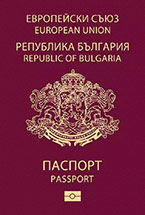צור קשר 050-7235981
בולגריה עוברת ליורו
Bulgaria will adopt the euro in 2014 but inflation remains the major roadblock, Citigroup Global Markets said in a report gauging the progress of central and east European countries on the road to the euro zone.
Bulgaria could join the 16 countries sharing the euro as early as 2013 but only if it makes it into the ERM II -- the two-year currency stability test before the country can drop the lev and adopt the euro -- by the middle of 2010, according to the report.
Citigroup evaluates positively Bulgaria’s fiscal policy, saying it still allows it to keep government debt and budget deficit far below the cap as well as maneuver with state finance in case of need.
After Estonia, which is expected to join the eurozone in 2011, Bulgaria will be the first to follow suit, Citigroup predicted, recommending that the country should channel efforts into the toughest challenge, inflation.
Bulgaria intended to apply for ERM II entry at the beginning of 2010 but then put the plan on the backburner. However, it has highlighted accession into the eurozone remains a top item in its to-do list.
Citigroup expects Bulgaria will enter ERM II in 2011.
For the first time since its European Union (EC) accession in January 2007, Bulgaria fulfilled one of the most elusive eurozone entry criteria after inflation was 1.8 per cent in February, according to the latest data by Eurostat, the EU’s statistical office.
The euro convergence criteria set an average inflation cap for eurozone candidates, which was 1.83 per cent in February.
The cap is updated by the month based on the average of the three lowest-inflation EU members, adding 1.5 per cent.
The data does not include statistics about France, where inflation has hovered around zero in the past couple of months. In January, it was a tiny one per cent and if it was flat in the second month of the year, the picture changes, leaving Bulgaria exceeding the cap but only by a small margin.
However, some experts are downbeat, saying that hitting the inflation target does not translate into fulfillment of the price stability requirements of the European Central Bank (ECB).
"Given the current shape of the European economy, it’s not clear whether or not the ECB would stick to the same calculation mechanism," Georgi Ganev, economist with the Centre for Liberal Strategies, told Dnevnik.
Before the global economy imploded, Bulgaria grappled with record-shattering consumer price spikes. Only a year ago the average annual inflation sped up over 11 per cent, a far cry from the Maastricht criteria. The recession cooled off the growth in consumer prices, with October even seeing a deflation on an annual basis.
Inflation is one of the five criteria each eurozone aspirant must cover. Bulgaria easily meets the requirement to keep its budget deficit below the three per cent of GDP mark and its government debt beneath 60 per cent of GDP.
To enter ERM II -- the two-year currency stability test before the country can drop the lev and adopt the euro -- a country should match at least two of the criteria. Bulgaria planned to apply for ERM II entry in early 2010 but ditched the plans. Finance Minister Simeon Dyankov said recently ERM II entry remains top of his agenda. He has said Bulgaria will aim to join the 16 countries sharing the euro in 2013.
Source: Dnevnik.bg



